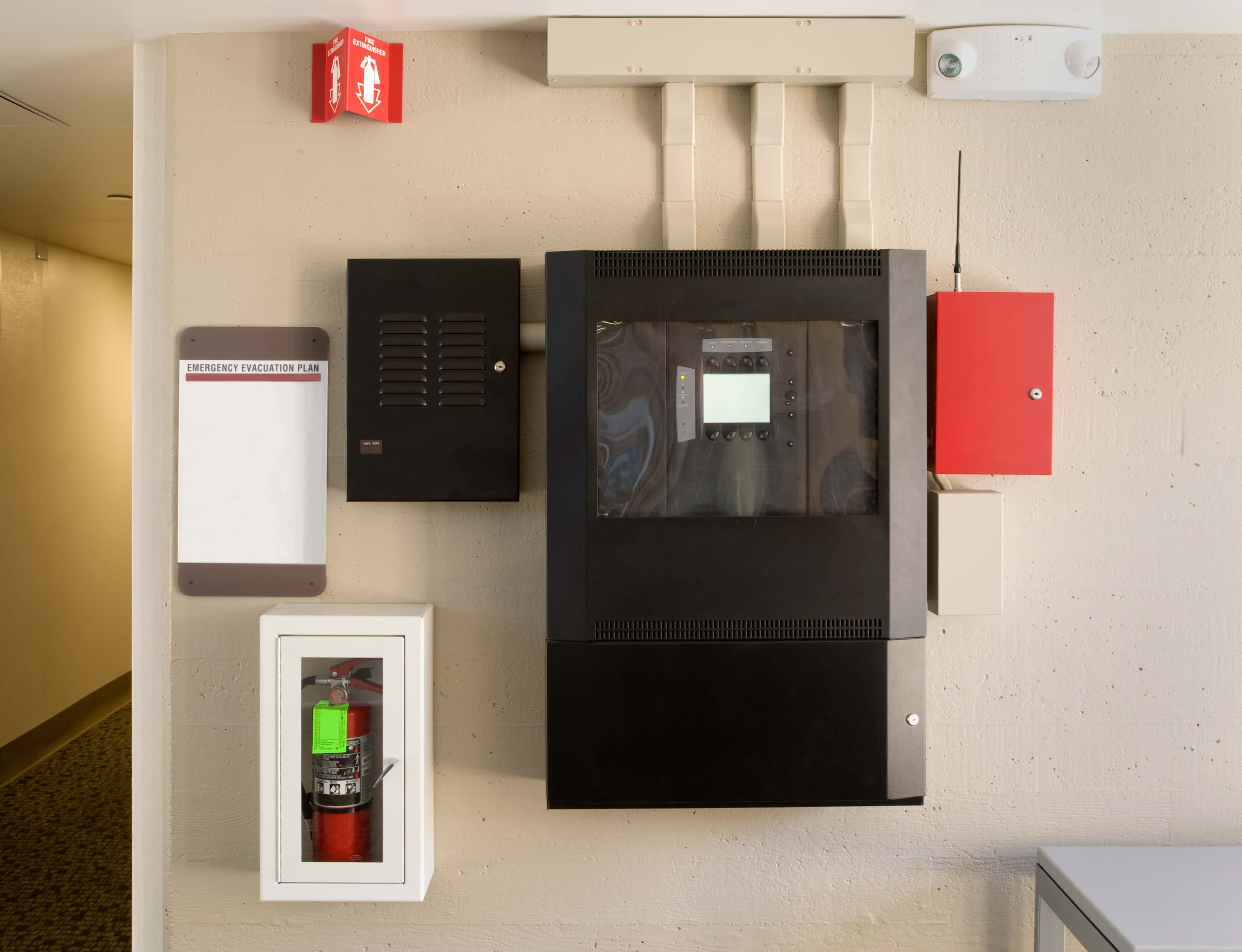Are you looking for a career where you can protect lives and work hands-on? A fire alarm technician career could be the right fit.
These skilled professionals install, maintain and repair fire alarm systems across the country. If you want to build a career where your work matters, learning how to become a fire alarm technician is a great start. Keep reading to learn the steps, what training looks like, and how Universal Technical Institute (UTI) can help.1
What Is a Fire Alarm Technician?
A fire alarm technician installs, inspects, tests and repairs fire alarm systems in homes, schools, businesses and public buildings. Their work helps make sure fire alarms stay in good working condition to protect people and property.
Fire alarm technicians have electrical knowledge and work with tools, wiring and digital technology to complete their responsibilities. They follow strict safety codes and often team up with other electrical pros to get the job done right.
Attention to detail, problem-solving skills, and a strong sense of responsibility are must-haves.
Steps to Becoming a Fire Alarm Technician
Step 1 – Meet Basic Requirements
Before you begin, make sure you meet some basic requirements:
- Have a high school diploma or equivalent: Most fire alarm techs go to trade school first, and a high school diploma or GED is usually required.
- Hold a valid driver's license: Fire alarm techs typically drive from job site to job site.
- Pass a background check: These pros work closely with customers, so it’s important their employers trust them.
Comfort with technology and mechanical abilities can give you a big advantage. Attending a formal training program can help you refine these skills.
Step 2 – Enroll in Fire Alarm Technician Training
Many employers provide on-the-job training. However, most prefer to hire candidates with education in electrical or fire alarm systems.
You can get started by enrolling in an electrical program like UTI’s Electrical, Electronics, & Industrial Technology (EEIT) program.130 Through hands-on training, you’ll get familiar with:
- Fire Alarm Systems.
- Electrical wiring and codes.
- Blueprint reading.
- Electrical circuits.
- Troubleshooting.
These are skills employers are looking for right now. Learn more about electrical courses that can help you prepare to become a fire alarm technician.
Step 3 – Apply for Fire Alarm Technician Jobs
Once you have the right training, it’s time to look for your first job. You’ll be qualified for entry-level electrical industry roles like fire alarm technician or installer.77 UTI’s Career Services team can help you put together a resume, practice for interviews and find local employers who are hiring candidates with your skill set.
Step 4 – Certifications for Fire Alarm Technicians
After finishing your fire alarm systems technician training and gaining some experience, you might want to get certified. Certifications show employers that you have the knowledge and skills needed to work safely and professionally.
A common certification is the NICET (National Institute for Certification in Engineering Technologies) certification for fire alarm systems.
Earning this certification usually involves:
- Passing a written exam.
- Having at least 6 months of full-time experience working on fire detection and signaling systems.
- Staying up to date with safety codes and standards.
Going to a trade school before testing can help get you on the path toward this credential as you will already be familiar with common safety codes and standards.
Students in the electrical program at UTI earn extra certifications that may fulfill other requirements from employers, including:
- American Heart Association's (AHA) certification for CPR and AED use.
- OSHA 10 certification for workplace safety.
- National Center for Construction Education and Research (NCCER) credential.
Fire Alarm Technician Job Outlook
There is a demand for professionals who understand alarm installation and electrical systems. Buildings will always need fire alarms that work well. This makes this career a good choice for those who value security.
Frequently Asked Questions (FAQs)
How long does it take to become a fire alarm technician?
Training timelines can vary. Students can typically complete UTI’s electrical training program in just a year. Earning certifications and gaining work experience afterward can help you continue growing in your career.
Do I need a license to work as a fire alarm technician?
Some states require a license to install or service fire alarms. Check the licensing laws in your state. Even when not required, having certifications can help you stand out to employers who require them.
What specific skills does a fire alarm technician need for their career?
To succeed as a fire alarm technician, you need good problem-solving skills. You should also pay attention to detail. Mechanical ability and basic math skills are important too. Being able to read blueprints and follow safety codes is also important, which you can learn in a formal training program.
Learn How to Become a Fire Alarm Technician at UTI
If you are ready to create a future where you can make a real difference, take the first step today. Universal Technical Institute’s Electrical, Electronics, & Industrial Technology program can help you train for a career in electrical and fire alarm systems.1
Request more information and an Admissions Rep will reach out to tell you how you can get on the path toward a hands-on career in less than one year!
Universal Technical Institute of Illinois, Inc. is approved by the Division of Private Business and Vocational Schools of the Illinois Board of Higher Education.

